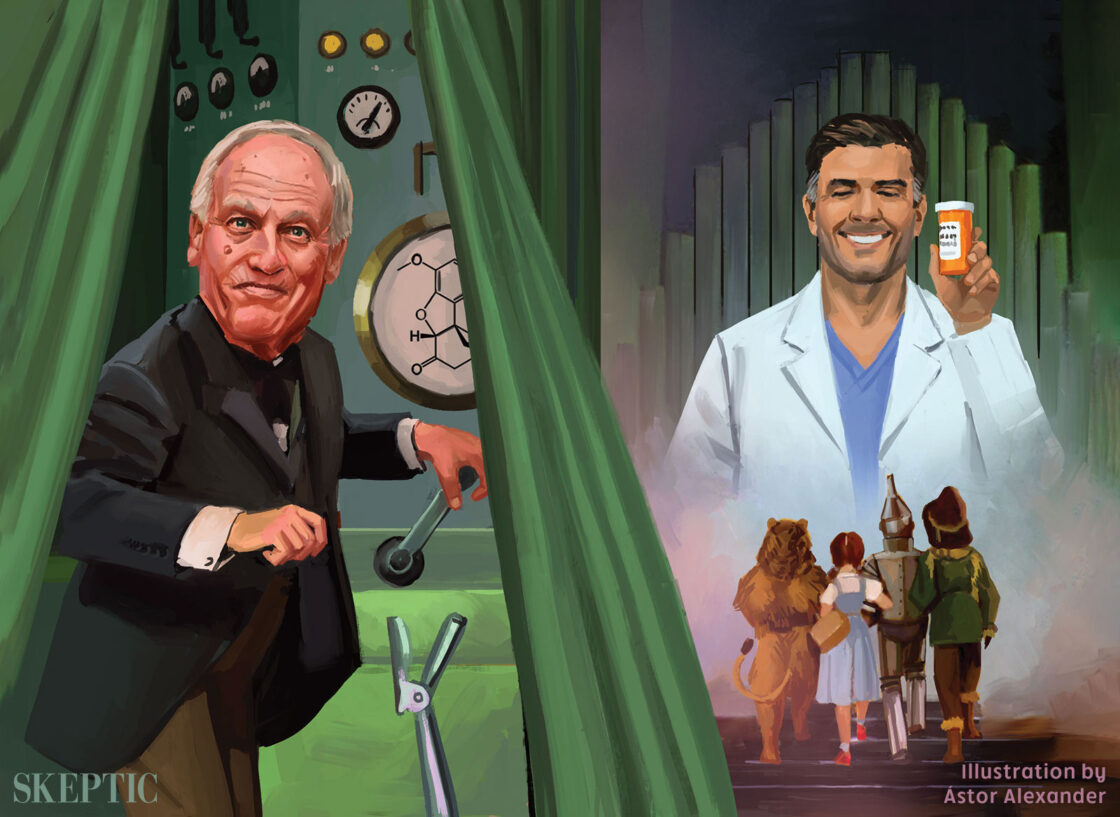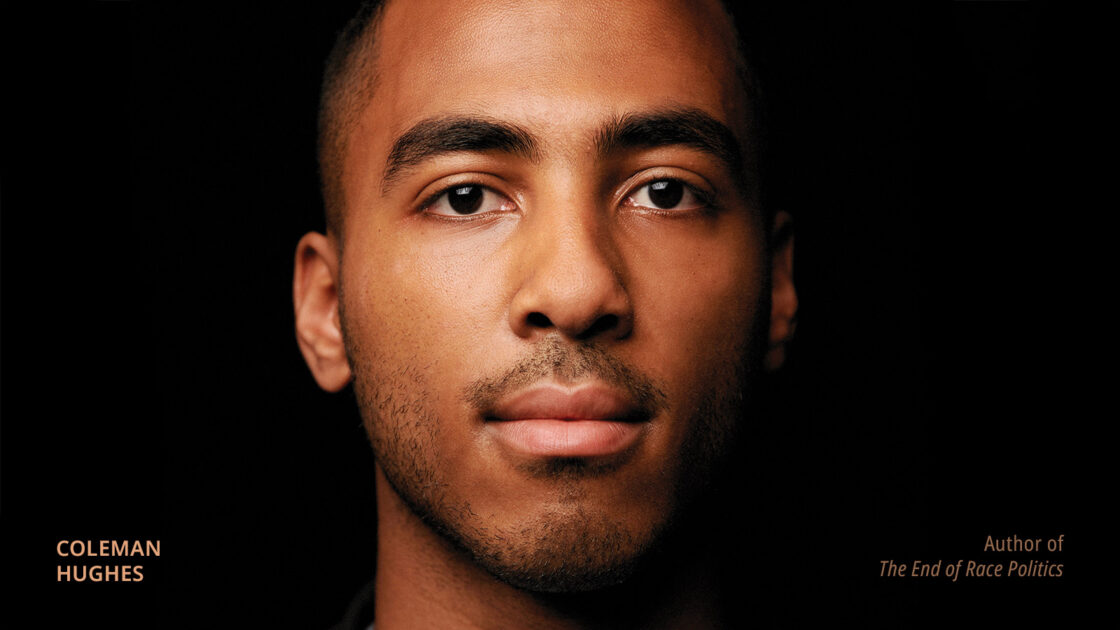Starting with the Terrible Twos, when toddlers hear the word “No” on a regular basis, people don’t like to be told they can’t do something. They often believe government regulations interfere with their rights. The government requires vaccinations for school attendance; parents complain that they should be able to make their own decisions about whether to vaccinate their children. The government requires that drugs be approved by the FDA before marketing; desperate patients dying of cancer complain that regulations are preventing them from getting the one new treatment that just might save their life.
Victims of disease do not demand quack treatments because they want to exercise their “rights,” but because they have been deceived into thinking that they offer hope.
Health Freedom
The “health freedom” argument is that everyone has the right to use whatever treatments they want, to control what goes into their bodies, and that it’s none of the government’s business. But as Stephen Barrett and William Jarvis explained on Quackwatch:1
Quacks use the concept of “health freedom” to divert attention away from themselves and toward victims of disease with whom we are naturally sympathetic. “These poor folks should have the freedom to choose whatever treatments they want,” cry the quacks—with crocodile tears. They want us to overlook two things. First, no one wants to be cheated, especially in matters of life and health. Victims of disease do not demand quack treatments because they want to exercise their “rights,” but because they have been deceived into thinking that they offer hope. Second, the laws against worthless nostrums are not directed against the victims of disease but at the promoters who attempt to exploit them.
Vaccine refusers don’t recognize that the government has a duty to protect the welfare of children and to protect the population from vaccine-preventable diseases. They tend to think parental rights and personal preference should trump everything else.
People go to other countries to get stem cell treatments that have not been tested, and cancer treatments like Laetrile and the Gonzalez protocol that have been tested and shown not to work. In a trial of pancreatic cancer, patients treated with the Gonzalez regime survived on average for 4.3 months; those using standard chemotherapy survived on average for 14 months and reported a better quality of life. But desperate patients still want to believe in these treatments and they insist it was wrong of the government to prohibit them in the U.S.
Right-to-Try Legislation
As of May 30, 2018, 38 states already had right-to-try laws and there is now a federal right-to-try law. It gives terminally ill patients the right to get experimental drug treatments that have not been approved by the FDA, that are still in clinical trials, as long as they have passed a phase 1 trial, the first step in the Food and Drug Administration’s approval process. At first glance, it sounds like a good idea; but the devil is in the details. The FDA already has an Expanded Use or Compassionate Use policy.2 It can be used when:
- Patient has a serious disease or condition, or whose life is immediately threatened by their disease or condition.
- There is no comparable or satisfactory alternative therapy to diagnose, monitor, or treat the disease or condition.
- Patient enrollment in a clinical trial is not possible.
- Potential patient benefit justifies the potential risks of treatment.
- Providing the investigational medical product will not interfere with investigational trials that could support a medical product’s development, or marketing approval for the treatment indication.
Over a ten-year period from 2005 to 2014, there were 9,000 applications to use investigational drugs; 99% of these were approved. Emergency requests are usually granted immediately over the phone, and non-emergency requests are generally processed within a few days.
My colleagues on the Science-Based Medicine blog, cancer researcher/surgeon David Gorski and lawyer Jann Bellamy, have covered this legislation extensively and have pointed out a number of problems:
- It cuts the FDA out of the loop, so it doesn’t have the opportunity to offer other options that might be safer or to give the patient what information it has about possible side effects.
- It removes the right to sue: doctors and drug companies are not liable for any harm that might occur to patients under this program.
- There is no oversight by an Institutional Review Board (IRB).
- It assumes that it is safe to try drugs that have passed phase 1 trials; these trials only involve a few patients and can’t establish drug safety. After drugs pass phase 1 testing, there are still high odds that they don’t work and aren’t safe.
- It forbids the FDA from using any information about deaths or other harms to patients under this program from being considered in its deliberations on approving the drug.
- It exposes patients to exploitation.
- It is a foot in the door to furthering undermining the authority of the FDA.
- The drug companies are not obligated to provide the drug, but they have no incentive not to. They can charge the patient whatever they want, they incur no liability, and if the drug kills the patient, the FDA can’t use that information to delay or stop approval of the drug.
- Insurance companies don’t pay for experimental treatments; drug manufacturers can charge patients whatever they choose. Less well-to-do patients will either forgo treatment or deplete their finances, depriving their survivors of an inheritance.
- Terminal patients who have “nothing to lose” actually do have something to lose: money, quality of life, time with loved ones.
The Origin of Right-to-Try
David Gorski calls right-to-try laws “a cruel sham and scam.” He says they were concocted by “the quackeryfriendly for-profit hospital chain the Cancer Treatment Centers of America and foisted on gullible legislators by the Goldwater Institute, a libertarian propaganda group disguised as a think tank.3 It was the Goldwater Institute that came up with the name “right-totry,” wrote model legislation, and promoted it to state legislatures.
The Profiteering Begins
The new law allows drug companies to make money by selling unproven therapies to desperate patients. Unscrupulous drug companies will be incentivized to skip the traditional clinical trial and FDA review process altogether.4 Brain- Storm Cell Therapeutics, for example, is already planning to take advantage, offering stem cell treatments to patients with amyotrophic lateral sclerosis (ALS, or Lou Gehrig’s disease). It plans to charge $300,000 for each NurOwn treatment. In the company’s own phase 2 trial, NurOwn failed to slow the progression of ALS compared to a placebo. They nevertheless embarked on a phase 3 trial. Without waiting for trial results, they decided to offer the treatment to patients under right-to-try because of “intense demand from patients who have no other options.”
Informed Consent
One of the major principles of medical ethics is autonomy, the right of the patient to self-determination. In earlier days, doctors were paternalistic. They decided what was best and ordered whatever treatment they chose. They were like parents saying, “You will eat your broccoli because I say so. Mommy knows best.” Those days are long gone. Today, patients have the right to make decisions about their own health and to refuse treatment, even essential lifesaving treatment, as long as they are of sound mind. Consent to treatment is meaningless unless it is informed consent. Patients must be given adequate information and must be able to understand the diagnosis, what the proposed treatment will entail, the risks and benefits of the treatment, the consequences of not treating, and whether any other treatment options are available.
Consent to treatment is meaningless unless it is informed consent.
Informed consent is mandated by both ethics and law. No one has the right to even touch, much less treat, another person without consent; such actions can be prosecuted as physical assault or battery. Obtaining consent is considered a must for anything other than a routine physical examination.5 Entering the doctor’s office and expressing a problem can be considered implied consent for a physical examination. Intimate examination (especially of a female), photography, and any invasive test or risky procedure requires specific expressed consent, which can be either oral or written. Written consent is preferable. Doctors are expected to document in the patient’s chart that they have discussed all the pertinent facts with the patient; and for surgery, the patient is required to sign an informed consent form.
In everyday practice, informed consent is not always honored. Doctors may not take the time to explain everything in detail. They may influence the patient’s decision by their language or by the way they present the facts or omit some information. Patients regularly sign surgical consent forms without reading them.

This article appeared in Skeptic magazine 23.4
Buy print edition
Buy digital edition
Subscribe to print edition
Subscribe to digital edition
I worry that under the right-to-try law, patients may not fully understand the risks and the low probability of success, and drug companies may take advantage to sell their products to desperate individuals at inflated prices. I worry that since these patients weren’t able to qualify for clinical trials, they may be less healthy and more likely to suffer problems with the experimental treatments than those who enroll in the trials; they may have other medical conditions or factors that make them more susceptible to complications.
Conclusion
No reasonable person wants health freedom without information. Imagine a world without laws, where patients are free to use any treatment any quack or snake oil salesman might invent, where patients can’t give informed consent and have no way of knowing what they are getting into. We rely on laws to protect us from contaminated and adulterated foods. We rely on the FDA to protect us from dangerous drugs and disasters like Thalidomide. As Jann Bellamy summarized:
The claims that “potentially lifesaving” drugs will actually benefit terminal patients are overblown, the risks underappreciated, and the procedures for obtaining unapproved drugs inadequate to protect patients from adverse consequences, both medical and financial.
About the Author
Dr. Harriet Hall, MD, the SkepDoc, is a retired family physician and Air Force Colonel living in Puyallup, WA. She writes about alternative medicine, pseudoscience, quackery, and critical thinking. She is a contributing editor to both Skeptic and Skeptical Inquirer, an advisor to the Quackwatch website, and an editor of sciencebasedmedicine.org, where she writes an article every Tuesday. She is author of Women Aren’t Supposed to Fly: The Memoirs of a Female Flight Surgeon. Her website is SkepDoc.info.
References
This article was published on May 29, 2019.


















Tzindaro, I suppose you oppose speed limits, building safety codes, and health inspectors in restaurants. I am glad most people disagree with you.
The clear way to allow researchers to provide unproven treatments to desperate patients without taking advantage of their desperation is to require that unproven treatments be provided for free, with an informed consent that provides all the knowledge that we have regarding the risks and benefits of the treatment and clearly stating the absence of knowledge when present. All those who prescribe the treatment should be required to provide followup data so if they don’t report outcomes someone else can.
There is also a fundamental difference between requiring a person to receive a vaccine (like forcing an adult to get tetanus shots, flu shots, or the shingles vaccine) and requiring someone to have his or her child vaccinated, just as there is no law against me cutting off my finger, but doing the same to my child would be considered to be child abuse. Making the source of an infection responsible for the medical expenses and pain and suffering of those who they infect might certainly seem fair, but if my child gets measles from Disney World and infects a neighbor, who ends up deaf, is my child or am I responsible for buying hearing aids and batteries for the rest of the child’s life? And how responsible is the parent of the child my child has infected?
Overall I don’t mind permitting the desperate from trying unconventional or even dangerous treatments as long as no one is permitted to profit from the experiment that is done on them.
Tzindaro writes: “…if I ever develop a life-threatening illness orthodox medicine will be my LAST recourse…”
I think it is safe to say that unless you die due to trauma, you are highly likely to develop or contract a terminal illness, and if mainstream medicine is your last recourse, it is quite likely to be the last thing you do.
Insuring the welfare and safety of the population is a basic role of government — we can discuss and debate what limits ought to be placed on such a role, but to dismiss lawmakers as “authoritarians” is a bizarre fringe point of view that pretty much locates you out of the community of rational discourse.
An adult does not need anyone to protect him. I am justly angry at anyone who wants to protect me against my will. I may make some mistakes, even fatal ones, but that is my right as an adult and nobody has any business trying to protect me unless I allow it. Authoritarians who think they should pass laws to protect people who do not choose their protection are on a par with churchmen in former times who wanted to protect people from going to hell by forcing them to follow the “right” religion. Many people simply do not agree with the prevailing medical teachings and choose a different way to manage their health. Why can some followers of the mainstream medical cult not understand that?
There are many other ways to treat most illnesses besides the ones advocated by the orthodox medical system and most of them are at least as valid, regardless of the bogus claims by orthodox medicine to hold exclusive medical truths. I have had some experience with several forms of alternative medicine and if I ever develop a life-threatening illness orthodox medicine will be my LAST recourse, only after all others have been tried and failed. Experience has taught me that alternative medicine is more likely to be sucessful. And to do less harm.
@Tzindaro
It seems to me that the same people who want to BLOCK women’s access to an abortion are the same people who want everyone else to have freedom to choose what to do when they are ill. Seems to me you’re mad at people who are trying to protect you from predators that prey upon the most vulnerable—the dying.
Tzindaro asks “What is the difference between the right to control ones own body in a case of a woman who wants an abortion and the right to decide what kind of treatment she prefers if she is sick? ”
One difference might be that the medications and procedures used to terminate a pregnancy have been tested and are safe — in many cases safer than carrying a pregnancy to term. Perhaps the issue is not simply “the right to control one’s own body” but the right to have access to medical interventions that have been shown to be safe and effective.
Maybe we should have “right to try” but not “right to sell”. People should not be paying for unproven treatments.
From the Dr. Hall’s article:
“One of the major principles of medical ethics is autonomy, the right of the patient to self-determination. In earlier days, doctors were paternalistic. They decided what was best and ordered whatever treatment they chose. They were like parents saying, “You will eat your broccoli because I say so. Mommy knows best.” Those days are long gone. Today, patients have the right to make decisions about their own health and to refuse treatment, even essential lifesaving treatment, as long as they are of sound mind.
No one has the right to even touch, much less treat, another person without consent; such actions can be prosecuted as physical assault or battery.”
Funny how all those lofty statements go right out the window where consenting to have fluids injected into your bloodstream (vaccines) are concerned. If one truly believes “no one has the right to even touch . . . without consent . . . ” why is that right nullified when the government says so?
Damn those “elitists” –
and their research, education and evidence!
“…We rely on the FDA to protect us from dangerous drugs and disasters like Thalidomide….”
Patients rely on physicians to protect them. Perhaps a data base of physicians who refer patients to/for “investigational drugs”, containing reasons and results, should be created. Then, having to defend and knowing the outcome, MD’s would think twice (or perhaps once) before such referrals
What is the difference between the right to control ones own body in a case of a woman who wants an abortion and the right to decide what kind of treatment she prefers if she is sick? It is the same right to choose in both cases, yet some of the very same people who demand her right to decide for herself in the case of abortion are quick to say she should not have the right to choose her own medical treatment.
Not only the issue of the right to control your own body is the same, but the problem of how to enforce a legal ban on alternative medicine is also. How do you plan to stop a patient from leaving the state and going somewhere where the treatment they choose is available? What penalty is harsh enough to deter a seriously ill person from trying an illegal treatment? Will the police bug doctors offices to see what kind of treatments they are using?
The practical problems of trying to enforce a ban on alternative treatments call for absurd police state tactics. The same right to privacy that underlies legal abortion would in logic make choice of medical treatment legal.
Speaking as a biased observer (I have worked as a researcher and senior executive in large and small pharmaceutical companies for over 30 years), my experience is that right-to-try laws are also not popular with the Pharma industry as a whole, for many of the reasons given. No company wants the negative publicity that will follow any serious side effects or even deaths in “uncontrolled” exposure to their products, and the current compassionate-use procedures offer far better access under expert care. In addition, many complex products, especially biological therapies, are in very short supply early in their testing when efficient production processes have not yet been developed. As a result, many right-to-try requests will be denied by the companies, possibly prompting another wave of anti-pharma sentiment. Right-to-try laws seem more of a token gesture or even a smokescreen to allow politicians to deflect attention away from poor healthcare policies and on to the medical community and pharmaceutical industry.
Informed consent is important not just to making decisions regarding health but most all decisions. It is sad how much effort is put into withholding information: from credit-card contracts with ‘fine print’ to fighting laws requiring useful product labels.
I have long felt that skeptics groups should join with consumers’ groups in lobbying for “Truth in Labelling” laws and educating the public about a wider variety of shady products (e.g. subprime loans). We would play a bigger role in society and shake off our reputation of being grumpy old men who want to spoil things for everybody else.
I usually enjoy articles by Hall. Not this one. This article has some truth to it, but is wrong in so many ways it would take a written critique many times its length. In short, it has more emotion than fact, it assumes many facts which are not established and it is written from the elitist viewpoint rather than that of the patient. Disappointing indeed.